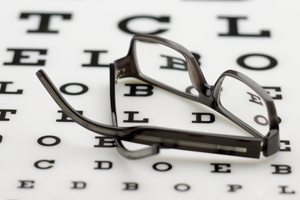Don't Lose Sight of Glaucoma Risk Factors

It is recommended everyone ages 40 and over receive an eye exam every two to four years, and every one to two years after age 65.
Baseball legend Willie Mays recently noted, "The longer you can keep your vision, the longer you're going to have a good life." Most people consider their eyesight a precious gift. The irony is that many Americans lose their eyesight when it could have been prevented.
It is time to raise awareness among the general public as well as at-risk groups to remind them of the need for regular, comprehensive eye exams to detect eye health problems.
Dan Good, M.D., a physician at Texas Tech Physicians Ophthalmology and Visual Sciences, said by the time a person notices vision loss from glaucoma, the disease is at an advanced stage.
"It is important to understand a person can have early or moderate glaucoma even if they do not notice any change in vision," Good said.
Glaucoma is the build up of pressure in the eye caused by excessive fluid when the eye's natural drainage system is not working properly. The pressure can damage the optic nerve, the part of the eye that carries information to the brain, leading to vision loss or permanent blindness.
What does it look like?
http://www.youtube.com/watch?v=zkjk37pbiV4list=PL9CA85C7193F05F9Efeature=plcpAm I at risk?
The National Eye Institute recommends a routine eye exam every two to four years after age 40 and every one to two years after age 65. People at risk include:
- African Americans over age 40
- People over age 60, especially Mexican Americans
- People with a family history of glaucoma
"At first, there are no symptoms," Good said. "If you have glaucoma, you may notice your side vision gradually failing. Objects in front may still be seen clearly, but objects to the side may be missed."
If untreated, people with glaucoma will slowly lose their peripheral or side vision.
"It will appear as if you are looking through a tunnel," Good said. "With time, your normal vision also may decrease and ultimately all vision is lost."
Good said the best way to detect glaucoma is to have a complete eye exam by an ophthalmologist, a medically trained eye doctor.
"Don't wait until you notice vision loss," Good said. "Avoid blindness sneaking up on you; take steps now to save your vision so you can have a long, good life."
Related Stories
Celebrating Veterans: TTUHSC’s General Martin Clay’s Legacy of Service and Leadership
From his initial enlistment in the Army National Guard 36 years ago to his leadership in military and civilian health care management roles, Major General Martin Clay’s career has been shaped by adaptability, mission focus and service to others.
Texas Tech University Health Sciences Center School of Nursing Named Best Accelerated Bachelor of Science in Nursing Program in Texas
The TTUHSC School of Nursing Accelerated Bachelor of Science in Nursing (BSN) program has been ranked the No. 1 accelerated nursing program in Texas by RegisteredNursing.org.
TTUHSC Names New Regional Dean for the School of Nursing
Louise Rice, DNP, RN, has been named regional dean of the TTUHSC School of Nursing on the Amarillo campus.
Recent Stories
National Academy of Inventors Names TTUHSC Faculty Senior Members
The National Academy of Inventors (NAI) has designated two current and one former TTUHSC faculty researchers as Senior Members.
The John Wayne Cancer Foundation Surgical Oncology Fellowship Program at Texas Tech University Health Sciences Center Announced
TTUHSC is collaborating with the John Wayne Cancer Foundation and has established the Big Cure Endowment, which supports the university’s efforts to reduce cancer incidence and increase survivability of people in rural and underserved areas.
TTUHSC Receives $1 Million Gift from Amarillo National Bank to Expand and Enhance Pediatric Care in the Panhandle
TTUHSC School of Medicine leaders accepted a $1 million philanthropic gift from Amarillo National Bank on Tuesday (Feb. 10), marking a transformational investment in pediatric care for the Texas Panhandle.
